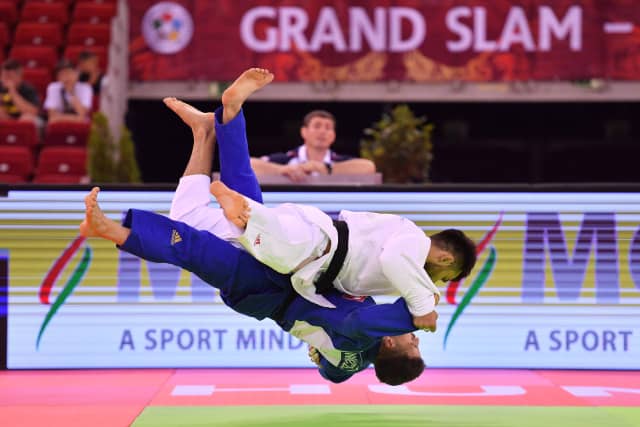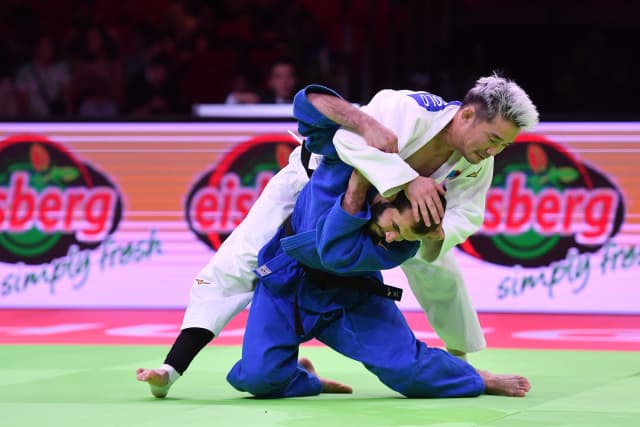Margvelashvili has indeed come out of his burrow. Two bronze medals in Paris and Tbilisi, nothing exceptional for a man like him, whom, like Abe, is preparing for the world championships in October. What we see now is far from the peak of form that both are looking to reach in Tashkent, but it is an indication of where they are now. They responded promptly to our question.
Abe's first fight, against China's Ziyang Xue, was a formality: ippon in a minute, no objection. Margvelashvili did not tremble against Poland's Patryk Wawrzyczek either. It was a little less forceful, taking a little longer, but the seriousness was the same. The Georgian was focused, as was the Japanese. The second combat of each was a copy of the first. While Abe needed only one attack, the Georgian was not in a hurry but safe and finished his with waza-ari. Things went wrong in the quarter-finals. Abe suffered a lot against Mongolian Kherlen Gambold. He failed to score and there was extra time. In the end, the Japanese prevailed by hansokumake, but he had to work harder in a single duel than in the previous two. He was qualified for the last fight but also warned that it would not be a cakewalk. Margvelashvili, on the other hand, stumbled and ended up falling completely in front of Rakhimjon Subhonov. The Uzbek is not one of those who stop to contemplate his victory and forget that the competition continues. In the semi-finals he took advantage of the momentum and gave a review to Ramazan Kodzhakov of Bahrain. Abe remained, of course, but without fear, because if there is fear it is better to dedicate yourself to something else.
It was the first time Subhonov had reached a grand slam final. In front of him was the best. What happened was this: Abe tried to do what he always does, seoi-nage, and Subhonov tried to ride over it. Abe then changed tactics and scored waza-ari with ko-uchi-gari, finishing twenty seconds later with his natural move, sode-tsuri-komi-goshi. He is ready. As for Subhonov, he now knows what awaits him if he wants to improve.
The Israeli Tal Flicker defeated the French Walid Khyar, adding a second medal for his country, the fourth in his private account.
Ganbold and Kodzhakov opted for the second bronze in a spectacular match. The medal ended up hanging around Ganbold's neck by hansokumake.






